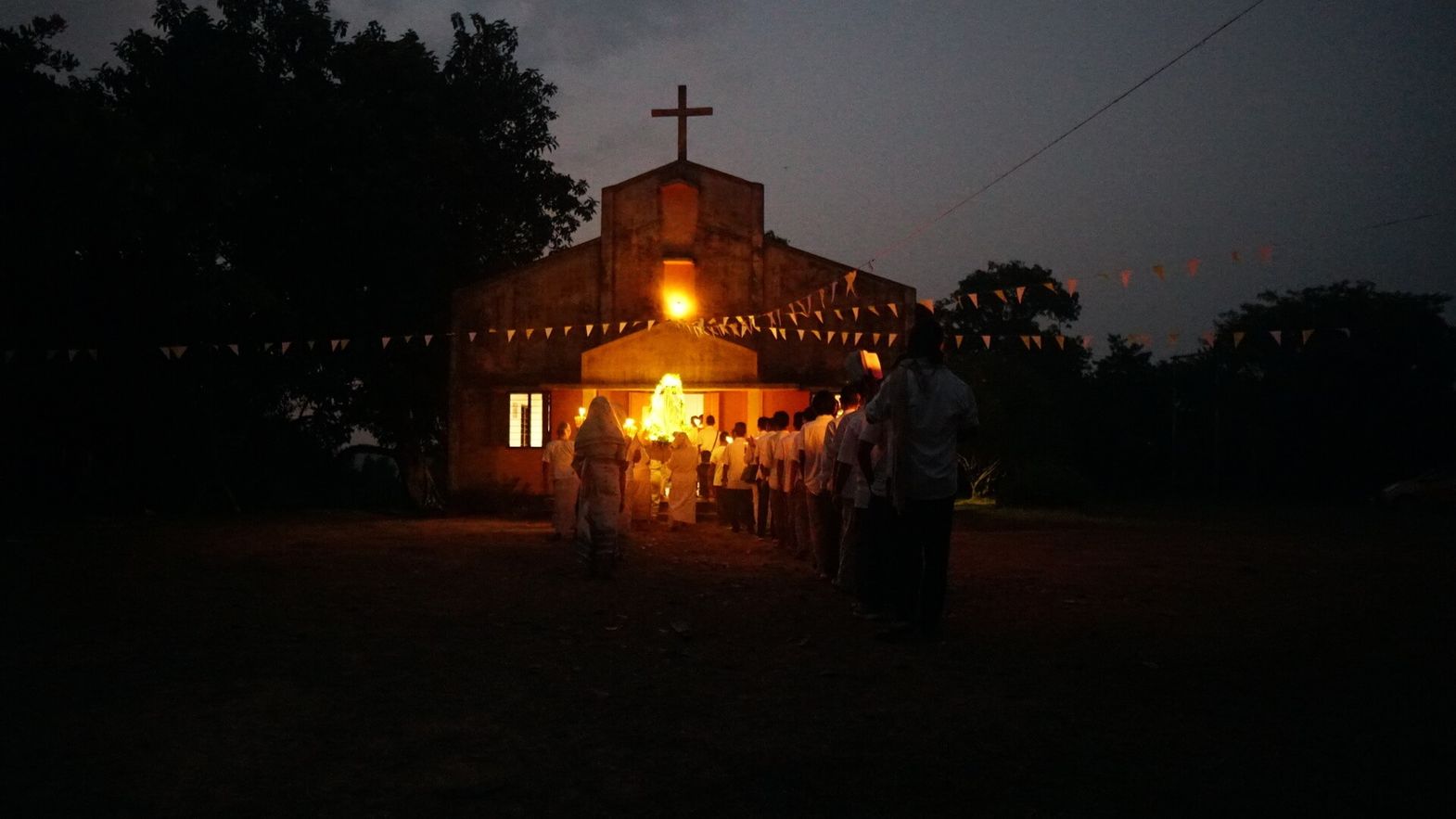 ©Anna Films
©Anna Films
It is not often that one has the opportunity to watch a film spoken in Garo language, one of the two principal languages of Meghalaya – a northeastern Indian state that borders with Bangladesh. Such is the case with Rimdogittanga (Rapture), the second feature length film by Indian filmmaker Dominic Sangma, whose debut MA.AMA (2018) premiered internationally at the Shanghai International Film Festival. The film's opening immediately reveals the filmmaker's great talent: an impressively crafted and carefully staged plan-sequence reveals a group of villagers, lanterns in hand, wandering through the night and trying to find and catch cicadas, which appear in the area only once every few years. It is nighttime and the film’s tone is set. The narrative will come next, when the morning after, the villagers realize a child is missing. Slowly, the fear of the appearance of unknown kidnappers will spread across the community and the key characters of this collective film will be introduced – mainly little Kasan, a specifically-looking kid suffering from night blindness who seems to be an alter ego of director Sangma; but also several of its elder members, whose provincialism does not allow them to see " further" and will eventually lead to disgrace. The ever-present Christian church and its Pastor, instead of truly enlightening the people, will be feeding their narrow-mindedness with devotion and unrest. That said, Rimdogittanga is a film that does not focus on a central character, but rather treats the village’s inhabitants as a social group. The camera follows and studies from an omniscient and almost voyeuristic point of view – that of Sangma, or that of little Kasan, who minutely observes the daily life and the behavior of the community, unveiling collective fears and beliefs, manipulation and xenophobia. Issues that are commonly present nowadays in the society at large – not only in Indian society, but all around the globe, especially in a moment when nationalism seems to be quickly spreading and people are so commonly classified in opposing groups and antagonized. Based on Sangma’s childhood memories, Rimdogittanga is a subtle and poetic film that examines contrasts and operates on the boundaries between good and evil, between light and darkness. It does so with a strong interest for visual expression, taking place during the gloomy, threatening yet fantastic, almost fairytale-like nights – and the seemingly safe brightness of the day, which at the same time will be the witness of the most brutal and raw violence.
Stefan Ivančić